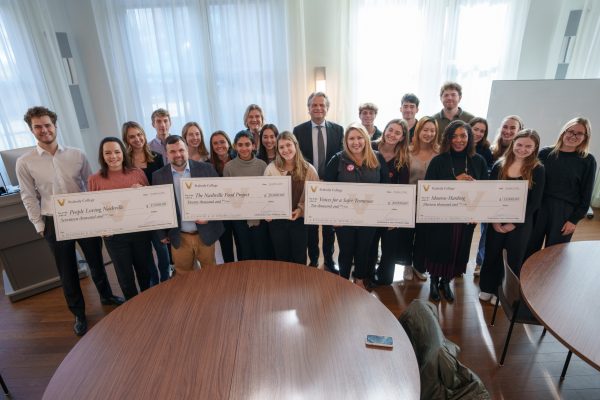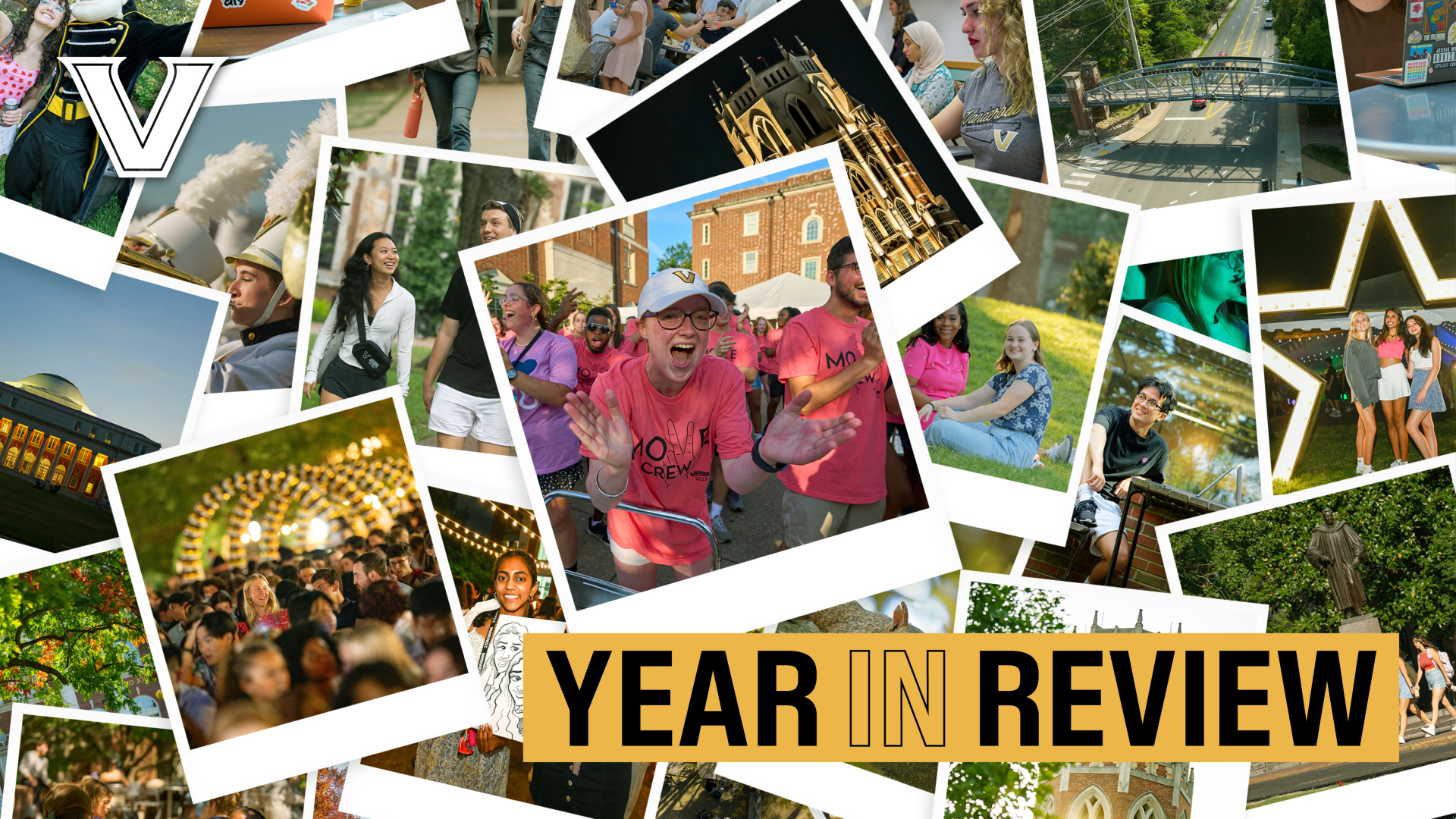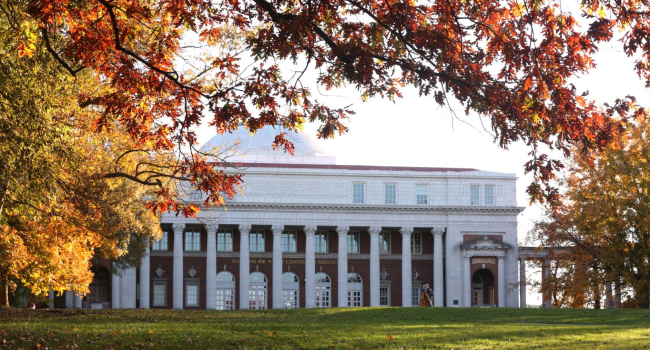
Thanks to taking a course devoted to helping students learn how to think like philanthropists, Vanderbilt students gave away $60,000 to four Tennessee charitable organizations at the end of fall semester.
The course, “Philanthropy and Social Problem Solving,” is made possible by The Philanthropy Lab, of Fort Worth, Texas. The course at Vanderbilt’s Peabody College of education and human development is now in its ninth year and was led this fall by Associate Professor of the Practice Kimberly Bess of Peabody’s Department of Human and Organizational Development.
Students in the class examined various approaches to creating change, including differences between preventing or ameliorating problems, meeting the needs of individuals versus addressing social issues systemically, and the evidence base for outcomes depending on those different approaches.
With that foundational understanding, students then moved on to research organizations that embodied their chosen theories of change, first on the web, and then through site visits. They investigated factors such as organizational management, program effectiveness, community engagement, impact, self-evaluations, as well as financial diligence. Finally, sitting as the Board of Directors of the Vanderbilt Philanthropy Lab, they determined how to allocate funds provided by The Philanthropy Lab.
On December 11, the students awarded grants to the following organizations:
Monroe-Harding, $13,000
People Loving Nashville, $17,000
The Nashville Food Project, $20,000
Voices for a Safer Tennessee, $10,000
In attendance at the ceremony was Vanderbilt Chancellor Daniel Diermeier. By being present and demonstrating institutional support for the class, Vanderbilt earned an additional $10,000 from The Philanthropy Lab which the students also were able to award.
In brief opening remarks, Chancellor Diermeier commended the class’s students for helping to “pay it forward” by making philanthropy of part of their lives early on, and for developing an understanding that addressing social problems is complicated and requires rigor.
Claudia Huskey is executive director of Voices for a Safer Tennessee, which is devoted to reducing preventable firearm tragedies and building safer, healthier communities. She noted that hers is the first advocacy organization to receive an award since the philanthropy class was established. “This investment is particularly meaningful because several of our founders are Vanderbilt University alumni. We are inspired by the students we worked with who are advocating for pragmatic, evidenced-based firearm safety policies in our state,” Huskey said. Huskey said the gift would fuel work to engage voters in both urban and rural communities in Tennessee.
Lily Bowman, a Vanderbilt senior majoring in human and organizational development and minoring in business, was in the group that researched and argued for funding for Voices for a Safer Tennessee.
“I am incredibly grateful to have been a part of HOD 3352 this past semester,” Bowman said. “This class has allowed students to engage with incredibly inspiring Nashville community members.”
“Gun violence is a particularly prevalent issue, especially in the wake of the Covenant School shooting, and we look forward to seeing how Voices for a Safer Tennessee can change the narrative around this problem,” Bowman said.
Of teaching the class, Professor Bess said, “Throughout the course these students learned about and critiqued the philanthropic sector, and they deepened their own commitment to informed and engaged philanthropy.”
Over eight years, The Philanthropy Lab has given Vanderbilt $417,000 in base grants. Counting bonuses, summer winnings, and this fall’s awards, Vanderbilt students have distributed $610,500 to Nashville charities.
By reserving a portion of the bonuses earned to date, Vanderbilt has been able to offer the course to 10 classes over eight years. The class is being taught again this spring.

